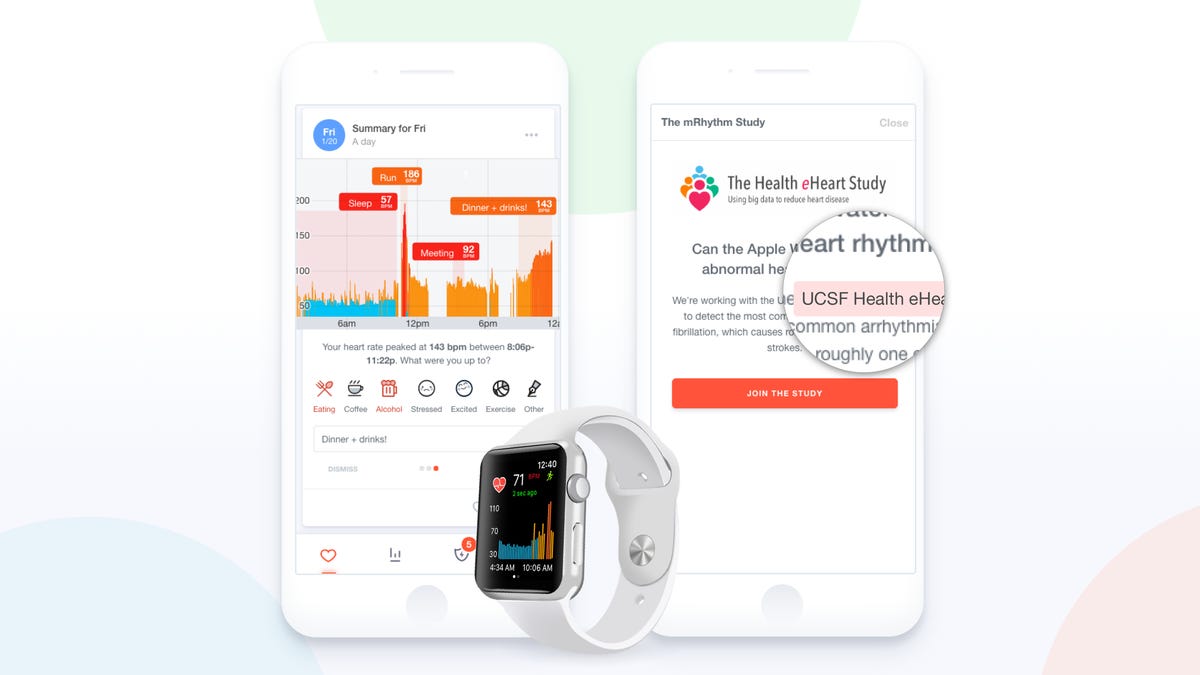Tomorrow's medical breakthrough? You're already wearing it
Maybe that Apple Watch really is more than just a gadget.

It turns out the Apple Watch is a pretty mediocre heart rate sensor by medical standards, but researchers at the University of California, San Francisco used an app called Cardiogram with some machine learning to make the Watch a 97 percent accurate detector of one of the leading causes of stroke.
That remarkable bit of bootstrapping points to the broader trend of everyday tech becoming medical gear: Connected thermostats, light switches, voice assistants and cars all have data about our daily patterns that can be turned into wellness information when enough of it is gathered -- what's called "big data" -- and sorted through by machines to spot patterns human observers would likely miss -- AI.
In the big picture this points to a revolution in early detection and malady prevention that may finally shift the bulk of medical expenditures to keeping us well rather than treating our serious illnesses.

